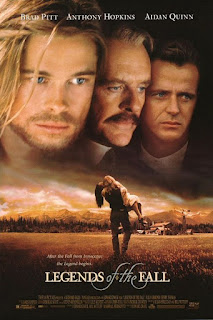
(June 1989, U.S.)
Hard to believe it, but it's been well over a year since I've posted any James Bond films! The last time was in March 2012 when I did a coincidental double feature of GOLDENEYE and GOLDFINGER (how cool was that!). LICENCE TO KILL, the sixteenth film in the series, not only continues the world's slow introduction to Timothy Dalton in the starring role, but also marks the end of the era of the 1980s as well as the end of director John Glen's ongoing command of the franchise.
There's much I want to see about Timothy Dalton as the great James Bond, but I'm choosing to hold off until I'm able to discuss the film that debut him just two years prior to this film. The story has elements of two Ian Fleming short stories and a novel, interwoven with aspects from Japanese Rōnin tales. The film sees Bond being suspended from MI6 as he pursues drugs lord Franz Sanchez (played by Robert Davi), who has attacked and maimed his CIA friend Felix Leiter (played for the second time by David Hedison - first time was in LIVE AND LET DIE) and murdered Felix's wife during their honeymoon. Originally titled "Licence Revoked" in line with the plot, the name was changed during post-production. They should have left the title as it was. Sounds a bit more edgy. Edgy, by the way, is the key word to describe Dalton, in general, as we see a side of Bond not yet seen on the screen, in which his own personal vendetta outrules his thinking and his judgement. In many ways, the story is not much different than any spectacular episode of MIAMI VICE you might have seen in the past and Bond's persona can take some lessons from Sylvester Stallone or Bruce Willis as a hardcore action hero. But even with that sort of character accusation, one has to remember that James Bond is no ordinary action hero. One who has followed his every move since DR. NO has come to expect a certain degree of style, grace and panache. Dalton delivers it when necessary, whether at the casino dressed in his tux or planting that very first kiss on the "Bond girl" of the movie, this time around an ex-Army pilot and CIA informant named Pam Bouvier (played by Carey Lowell). You see...even when James Bond is real pissed off, he's still the man we all love!
To interpret LICENCE TO KILL as a truly faithful Bond connoisseur versus the average 1989 summer moviegoer looking for a Friday night thrill is, perhaps, touchy, at best. There are lot of reasons one can condemn a Bond film like this that goes up against the likes of BATMAN and INDIANA JONES if they're going to truly pick it apart piece by piece as compared to some of the other Bond masterpieces that preceeded it. Hell, the fact that this film has Wayne Newton in it may be enough of an excuse to tear it apart (Wayne Newton?? Seriously??). But if one can remember and appreciate that the concept of a man's anger, revenge and retribution are elements that serve to make him more human, then it's necessary to remember that James Bond is a human being with deep, personal values of friendship and loyalty. He and Felix Leiter have been close friends since Bond's first screen assignment in Jamaica. To not have Bond avenge the attack on his best friend would seem quite implausible, in my opinion. As for the traditional James Bond screen formula, everything stills works, particularly the action stunts and the great climax of the tanker trucks on the road. The film takes on a realistic style, as well as showing the "darker edge" of the Bond character. It features more of a true Ian Fleming story in the script than in most of the post-60s Bond movies, in my opinion. And I might also add that LICENCE TO KILL concludes with one of the best and most exhilirating climactic explosions I've ever seen in any Bond film, as well as being the last Bond film to feature the character of Felix Leiter until CASINO ROYALE seventeen years later.
Well, whether James Bond fans liked LICENCE TO KILL or not, whether the film made enough money for the studio or not, I can only say that it was a shame that fans had to wait six long years before another James Bond would grace the screen in GOLDENEYE.
Favorite line or dialogue:
Franz Sanchez (to Lupe): "What did he promise you? His heart?"
(to Dario): "Give her his heart!"











